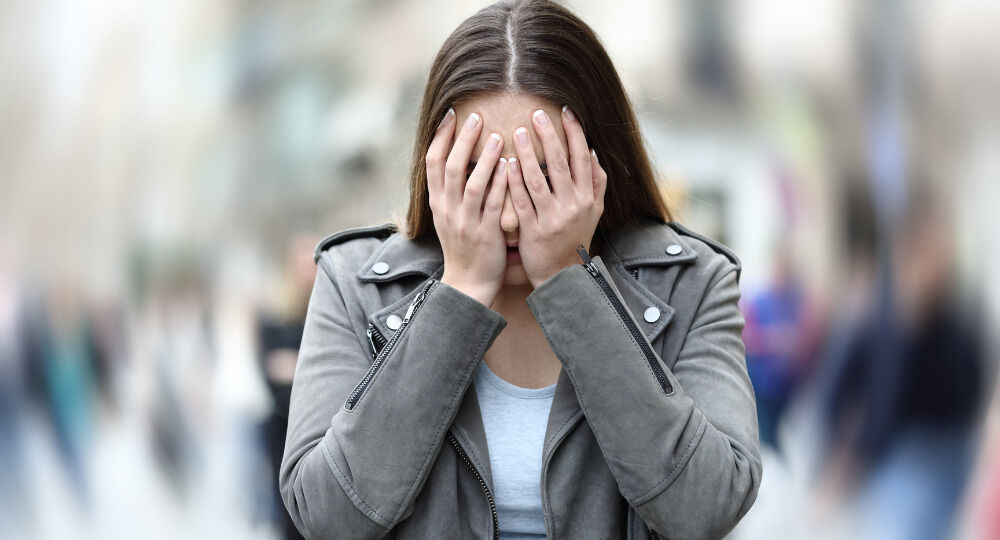By Marilee Feldman, LCPC, CADC
In not-so-great news, these days many of us—and I mean MANY of us—are struggling with anxiety. There’s a global pandemic, social unrest, political discord, and general unease about where things are headed. Why wouldn’t we be anxious?
In better news, more and more people are entering therapy to get help for it, and the stigma around counseling has decreased greatly. We could all use the support and connection right now. I’m the world’s biggest proponent of therapy.
My question for today is, How effective is your therapist in truly helping you with your anxiety? I know that I personally have walked into a therapist’s office, talked about my problems, and walked out feeling better. It feels good to talk things out and connect with someone about your struggles, especially when you’re dealing with something new, such as a major new life stressor like a job loss, divorce, a health problem…or global pandemic. With theses sorts of stressors, being anxious is expected.
When anxiety is chronic and pervasive, however, talking about your problems may not be all that helpful in the long run. Wait, what, you say? I always feel better when I leave my therapist’s office! Bear with me for a second because, well, I do too. As a therapist, I truly believe that life is hard enough, and why wouldn’t every single one of us want an hour a week to sort through life, reflect on it, and connect with someone who knows how to help? No argument there.
It’s just that over time, perhaps you’re realizing that after multiple sessions or rounds of therapy, your anxiety problem really hasn’t gotten better. This is in part because of the nature of the problem: If you have an anxiety disorder, episodes tend to recur. What I’m wondering about, however, is if you feel like you’re getting anywhere with it? Do you feel like, despite your most recent episode, you have more skills than before to cope with it, that it’s somehow getting easier, that you know what to do next time you’re triggered by your anxiety? Are things trending upward?
If the answer is no, it may be time to learn a bit about what really good counseling for anxiety looks like. Here are a few tips to help you figure out if the counseling you’re getting for your chronic anxiety is truly likely to be effective:
- Your therapist helps you learn to spot anxiety, rather than talks with you about your fears regarding the latest issue. We know that anxiety tends to hop around, always looking for new problem to attach itself to. It’s understandable to think, “Well, now I’ve go this whole new thing making me anxious that I’d better figure out,” and then to view each problem as separate and delve into the details of the latest fear or concern. A better approach is to learn that despite the varying subject matter, the actual problem is the anxiety itself and how you approach it. Your counselor’s job is to help you get to the point where you say, “Hmm, this is the latest trigger for my anxiety. Maybe I don’t have a whole new issue here and maybe I’ve got to approach my anxiety differently.” It may seem strange, but a good anxiety counselor will not explore “the content” of the latest problem in detail, because that is what you do already, in the form of worry. They’ll help you learn to recognize your typical anxiety triggers and identify that the issue is anxiety, not necessarily the latest problem at hand.
- Your counselor helps you distinguish problems from worries. This is a huge deal. We often think we’re solving a problem, when actually what we’re doing is worrying. Solving problems is a great thing and tends to make things better. Worrying, on the other hand, keeps us up in our heads in constant thinking mode, driving up our anxiety. Worry tends to dupe us in to thinking we’re solving a problem and doing something useful, when actually it just makes us more anxious. A good counselor will help you identify when you’re worrying and respond to it differently.
- Your therapist will talk to you about uncertainty. Anxiety is basically a difficulty of coping with uncertainty. For all of us, when we face uncertainty about what will happen in the future, our anxiety will go up. Not just you! But how we approach that uncertainty varies greatly from one person to the next. People with severe anxiety tend to have more difficulty tolerating uncertainty, and a good anxiety specialist will be using this word often and teaching you about how to accept more uncertainty.
- Your counselor teaches you that whatever your anxiety tells you to do, you should probably do the opposite. Your anxiety might say, “My business is about to fail, so I should make all these changes and work harder!” Hopefully your therapist will teach you that you are listening too much to your anxiety and letting it run the show, and maybe you should learn not to listen to what it’s saying so much. Maybe instead of working more, it would be better to deal more effectively with that fear about everything going wrong. Maybe your anxiety says, “I might have a major health condition,” even though you find yourself saying that a lot and without a lot of evidence, and so you think you should google that potential condition to try to feel better. A counselor skilled in working with anxiety will teach you to do the opposite and resist the urge to do that google search. Whatever it is your anxiety says you should do, it’s usually best to do the opposite. Your therapist should be talking to you about listening less to your anxiety, which is like an annoying little pest that you shouldn’t be giving so much attention to. Your job is to show it you’re not going to engage with it.
- Your therapist knows something about exposure therapy. Exposure therapy is the cornerstone of good anxiety treatment. It means that you and your counselor determine what sorts of things your anxiety makes you avoid and then decide how you can expose yourself to those things, in a manageable, graduated way. For example, if you avoid talking to strangers due to social anxiety, or your avoid the grocery store due to having had a panic attack there, a counselor trained in exposure therapy will guide you to engage in those things. We know that avoidance strengthens anxiety, and exposure reduces it. While exposure sounds difficult, it is actually really empowering, and it’s also the most scientifically confirmed form of therapy in mental health. You learn that you can live with less fear and cope more effectively than you ever thought possible.
So, if you’re getting counseling for chronic anxiety, my question again is, Is your therapist using these methods, and do you feel as though your skills at coping are improving? If not, I suggest you seek out a counselor with specific training in the most effective forms of treating anxiety.



